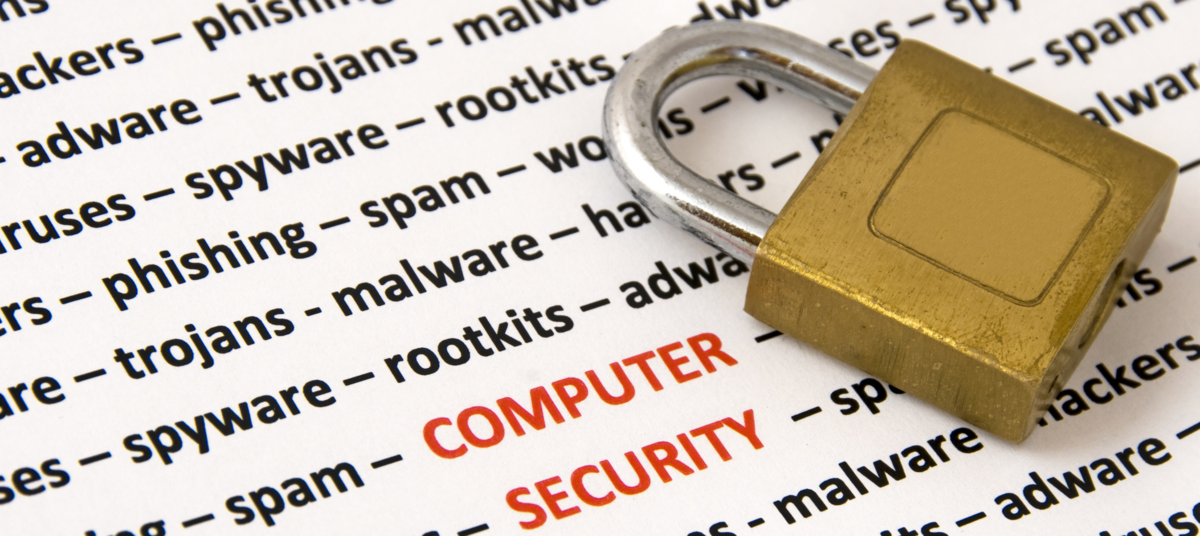Life in data. How to protect data on your computer?
2019-11-29

These days, a computer normally accompanies a person all day long. Very often it is a working tool, a way of connecting friends, a way of sharing important things, an assistant with housework or a partner for free time. That's why it knows a lot about us. We should be aware of this. Learn how to protect yourself from losing data from your computer.
Although its 30 November when we mark the annual Computer Security Day, everyone should be aware year-round that their companion can be a good servant but a bad master. If the user is not careful, they can easily end up presenting data that reveals a lot about them on a gold platter for an attacker. This can put their money, privacy and reputation at risk.
There are a number of types of attacks which are widespread in this region. They focus mainly on obtaining data for internet banking, but there are also attempts to obtain data on residence and habits with the aim of robbery or intimate photographs with the intention of blackmailing the person.
It seems that every user tells themselves that nothing like this will happen. They think they are careful and that they do not put any sensitive data on their computer. In fact, though, we often unconsciously answer questions from applications which are not well-secured, or we betray ourselves in confusion, or we keep things on our computer which go far beyond the bounds of privacy.
In spite of efforts to change this behaviour, it hasn’t changed at all. Therefore, it is better to think about the basic security steps that we can be sure will at least significantly reduce the ability of an attacker to overcome your security.
USE STRONG AND UNIQUE PASSWORDS
Although it’s not easy when there is such a large number of passwords that we have to give when registering in so many applications, it is good to use strong and unique passwords.
For this purpose, it is good to use a safe password generator, which produces nonsensical but unique and strong passwords which you can store safely.
A strong password should be at least 12 characters long, use both uppercase and lowercase letters, ideally with special characters too. It is ideal to reset this password every three months.
To keep passwords safe, use a reliable password manager.
USE ViRus checkers and ANTI-SPYWARE ApPLIcations
Spyware programmes are a form of viruses that come under the guise of another program, or the applications you use access your computer and collect your personal information there.
It is good to install software to fight against this kind of attack.
Apart from this, definitely use a virus checker, ideally a known, proven one that is regularly updated. The updates collect information on new attacks.
If you use a computer to work with high-value data, don’t be afraid to increase the protection of your upgrade for a small fee. It’s worth it and it’s just a little bit of insurance that can save your skin.
CAREFUL IN PUBLIC
Today’s world of coworking and café freelancing often leads to the need to use computers on public networks.
If you are forced to do this, be careful. On a public or other network, always use a VPN, only visit essential and unavoidable web sites. Don’t visit sensitive pages such as internet banking or your store of passwords for different applications.
FREE IS ALWAYS A RISK
The age of information and the internet also brings many possibilities for how to watch or download movies, series, videos, music, programs and sports events over the network.
However, this includes the risk of spyware, which can be installed on your computer while you watch without your knowing about it. Be careful and don’t trust the attractive offer of free shows.
VISIT ONLY SAFE AND TRUSTED WEBSITES
Similar to streaming and downloading services, watch out for the content of strange-looking websites. If you are attracted by unsolicited content, mostly pornographic or with tabloid-sounding link text, don't respond to it and block the page straight-away.
WATCH OUT FOR STRANGE COMPUTERS
Although it sounds trivial, you should also watch out for strange computers. It often happens that when we use a computer at work, in an internet café or at a friend’s we use pages that request login using personal data.







